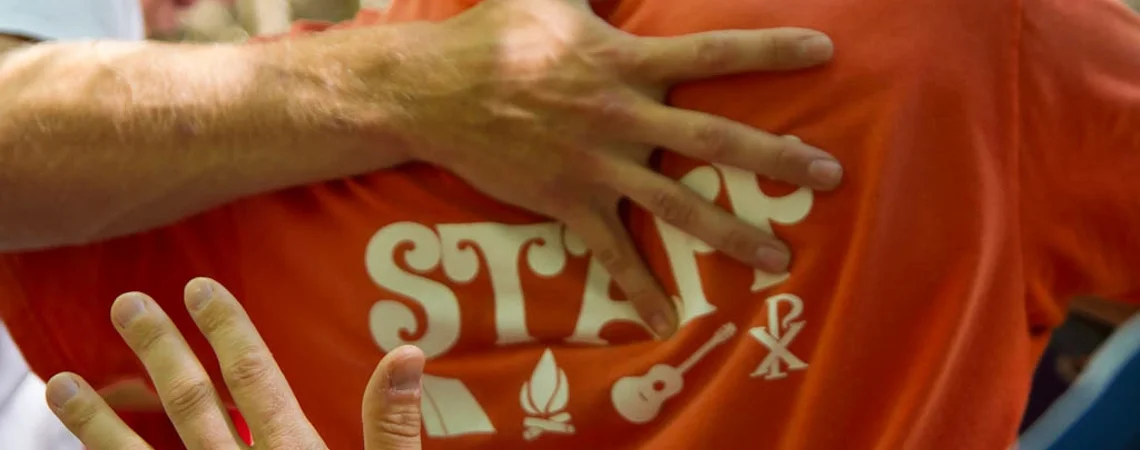Social Graces, if you please…
One of my favourite days of the S.T.A.N.D. project was definitely day 1. In it, we saw the biggest shifts from awkward, stand-offish teens to cordial, welcoming young adults. And many of these changes occurred after just one hour of open, honest discussion. The day before, during the Opening Staff Meeting, I had frontloaded with the counseling staff the importance of a good introduction and explained in detail how I wanted them to introduce their campers the following morning. The camp at which I ran the pilot program, Glen Mhor in Baysville, Ontario, was already extremely good at welcoming campers and parents on Opening Days but this was taking it all a bit further. With the understanding of a good introduction, we were demonstrating just one step in the lost art of social graces.
I began by introducing myself in the courtyard and explaining what an honour it was to work with them all. We then had a senior staff member demonstrate how to give a “good, firm” handshake. And then...we practiced. This was the most important part of the lesson - giving the teens an opportunity to practice - to feel awkward, uncomfortable, and a little silly and then...to try it again. No one was centered out because everyone was practicing all together.
Cabins were paired up (all done in advance throughout the week so things began with same genders and ages and changed every day so that all cabins had time to intentionally interact). Counselors introduced their own campers with phrases like “it is my pleasure to introduce you to” or “I am thrilled to have you meet”. A game was played to help the cabin pairings learn one another’s names and, before they even entered the lodge for their first session, the campers knew more people, had had a few giggles, and had learned to ‘break the ice’.
One of my favourite skits of the week introduced our lesson of the day. I was fortunate to work with 4 well-seasoned senior staff members who fully understood the importance of intentional teaching and who are also, if I do say so myself, pretty darn funny people. We ran a series of the same vignette 12 times, each time a different century, complete with very quick costume changes. The campers saw the year change on the screen behind the actors and watched how different generations of people handled the same scenario. Two people pass in the street, one carrying packages which she drops. The reaction of the the other person changes with each passing year. We began as cavemen and worked our way up to present day, highlighting Shakespearean England, 1890’s cow “folk”, and the 1950’s, just to name a few. We saw how the greatest changes occurred in the last several decades. The giggles were plentiful for the first 10 exchanges but not so many as we got to the 1990’s and present day. As entertaining and thought-provoking as the skit was, the most important part of came in the debrief. We chatted about what they saw and why they thought we, as a people, had changed.
S.T.A.N.D. Leadership campers learning about Social Graces.
The session continued with several more activities, the campers divided once again in those same cabin pairings, and another skit depicting our inability to communicate effectively face-to-face due to all the technology quite literally at our fingertips. Although the Camp Director and I thought we were quite amusing, our skit did not get the laughs from the teens that we had expected. In reflection, I think we hit a little too close to home. The point of the skit, however, was not missed by our campers.
With the sketches and exercises out the way, it was time for some serious discussion. Together we examined very specifically what constitutes social graces and why we think we, as a society, don’t use them much anymore, and shared concrete examples of social graces we could use starting right that minute at camp.
And, as became part of our daily routine, we took part in “World Vision” and talked about what our world would look like today if everyone used social graces. Before leaving for their first program area of the morning, campers were asked to shake hands with the people around them and wish them a great morning. Again, this was pretty awkward on day 1 but it got better each day and, by the end of the week, they didn’t even need to be reminded. It was pretty amazing to watch that small practice turn into such a powerful ritual.
Being purposeful with expectations of social graces was pretty new to some of these campers. They had never shaken someone’s hand before, had never properly introduced themselves, or said hello to people they didn’t know but on this day, after just one hour of being completely intentional, things happened.
I witnessed small changes at first but, once it gained momentum, it was like a landslide. Campers held doors open for one another, made eye contact when they spoke, offered their seats, introduced themselves to new people, used ‘please’, ‘thank you’ and ‘you’re welcome’ a whole lot, helped one another with tasks without being asked, and made sure no one felt left out. Now camp is always a great place for people to feel ‘at home’; I witnessed this for years as a Camp Director but this, this was different.
Many special touches were added throughout the day but I’ll fill you in on all of those after we get through the other 4 letters! In my next installment, I’ll take you through day 2, T - Take Responsibility for Your Own Actions. The campers sure had a lot to say on day 2.
Thank you for taking the time to read. It was my pleasure to spend these moments with you and I wish you a wonderful day.



